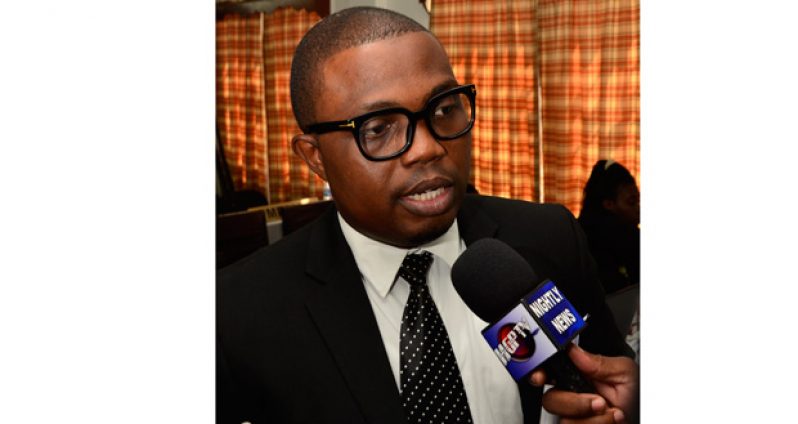By Shauna Jemmott
A LAWYER representing prisoners in the ongoing inquiry into the March 3, prison riot says there needs to be a review of the prison security system to prevent contraband items from getting into the prisons. It was the discovery and seizure of mobile phones and marijuana – items prisoners are not allowed to have – that led to the riot, which left 17 prisoners dead at the camp Street prison. The prisoners had lit fires, using their mattresses, to protest the seizure of the items.
Even with the inquiry on and heightened security measures, a prisoner Collis Collison has proudly used the Facebook to display cash, including $5000 and $1000 notes, raising concerns about the “big business” happening inside prison walls.
But who are the businessmen who would supply prisoners with illegal substances and phone credit to sell in jail, and where and why does a prisoner get money?
“This is not a phenomena that has been going on today or yesterday; this is something that has been going on in the prison for a long time,” said attorney Dexter Todd.
“They have to review their own security system and their own arrangement in checking prisoners as they go in and go out, and prisoners who have families who are coming to bring items for them.”
Todd is representing prisoners Marcellus Verbeke, who was injured during the riot, and and the relatives of deceased prisoners Sherwin Trotman and Delroy Williams. Prison authorities have not discounted the involvemnent of some prisoner officers.
“I will not sit here and deny that we don’t have some officers who are corrupt; that is a fact,” Kevin Pilgrim, the Superintendent of Prisons said at a March 3 press conference. The law provides for two phone calls per week.
“Persons will clearly state that that is inadequate and they will do what they have to do to get (more),” Pilgrim stated.
He said that the prisoners get the phones by various means.“Once there is a will there is a way,” he said, acknowledging the involvement of prison officers in smuggling items into the prisons.
It was last week that the media reported that some prisoners still had access to mobile phones and have been communicating with the public via social media, even commenting on, and posting pictures of, the food served to them in the jail.
The attorney said that he finds the allegation of prisoners transporting mobile phones and certain other contraband items in certain parts of their bodies to be “atrocious.”
“As we are aware, all these things are checked before the prisoner receives them and so (this) begs the question of who else is involved,” Todd told Guyana Chronicle.
President David Granger said earlier this month that there is need for a maximum security prison facility.
“What we’re contemplating is ensuring there is a correctional facility which can guarantee the security of high-risk prisoners without allowing the outbreak of the type of violence we’ve seen,” the Head of State said during his weekly programme, ‘The Public Interest’.
Throwing of items over the prison wall is one known way of getting prohibited items into the prison, but government had beefed up security outside the Georgetown Prison by employing the services of the Guyana Police Force and Guyana Defense Force, having their officers stationed at strategic points around the prison. And the Georgetown Prison is equipped with a scanner.
Prisoners on outdoor duties also have an opportunity to interact with the public, which increases the opportunities for prohibited items to be smuggled into the facility. Guyana Chronicle also understands that illegal items are sometimes smuggled through prisoners who are hospitalized, with marijuana sometimes being strapped to their bodies on return to the penitentiary.
Contraband items or prohibited items are things that should not be in the prison, including drugs and cell phones.
“Contraband can be anything that is unauthorized.
“…our business, if you give an inmate a stick of gum and it is not authorized it’s the beginning of something,” Todd said.
“Although it’s small and may have no significance in what we do, once you give him that one illegal piece, it could move from there to a candy, then to drugs, and then a cell phone,” the attorney stated.
With mobile phones and marijuana discovered in the prison, the possibility of illegal weapons entering the prison also exist. Prison wardens have previously been charged and convicted for trafficking narcotics into the prison.
The latest of such case was almost a year ago, on March 26 when a prison officer Ceon Paul was sentenced to four years imprisonment for trafficking narcotics in the Georgetown Prison.
Paul of Lot 1 Bent Street, Werk-en-Rust, Georgetown was found guilty of the charge which said that on January 12, 2015 at Camp Street, Georgetown, he was caught with 30 grammes of cannabis-sativa (marijuana) in the prison.
Paul was also sentenced to six months in jail in January of that year after admitting that he smuggled packets of cigarettes and a Subscriber Identity Module (SIM) card, both prohibited articles, into the Camp Street facility for inmates. He was caught “red-handed”.




.jpg)









